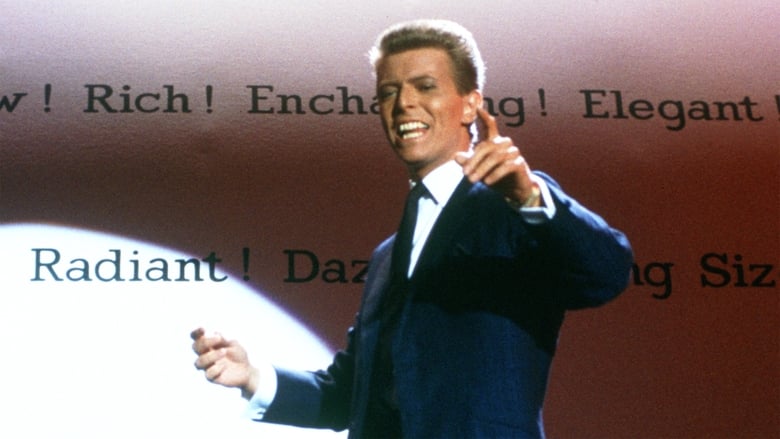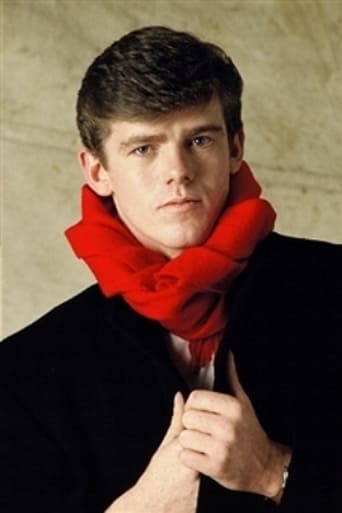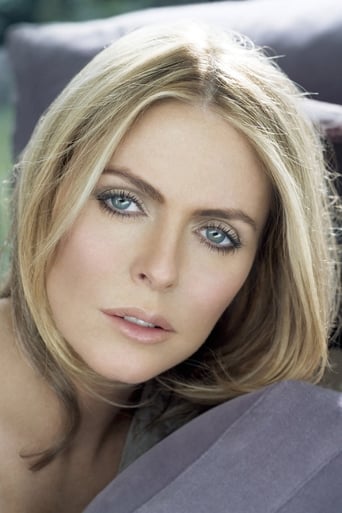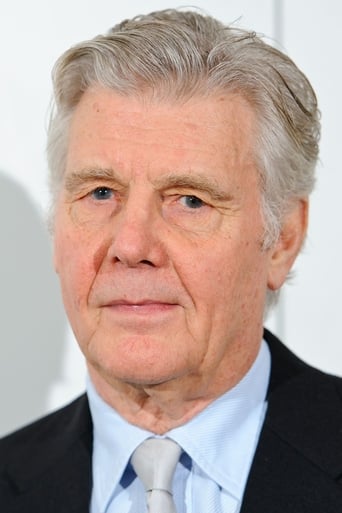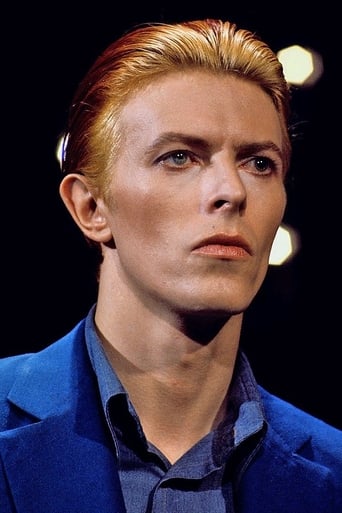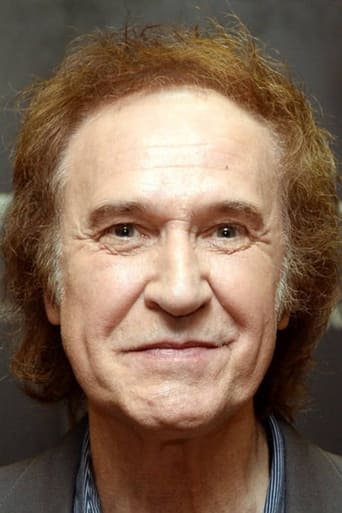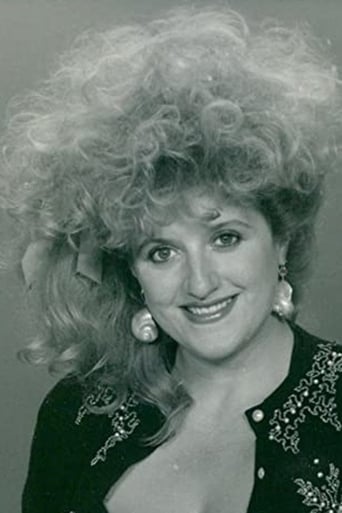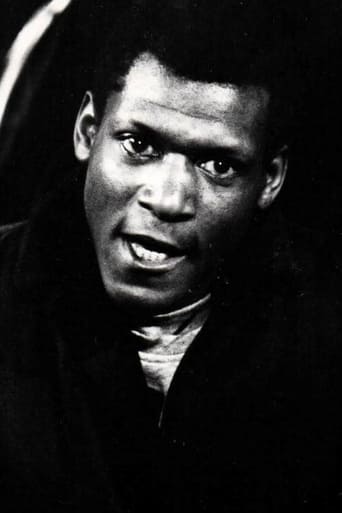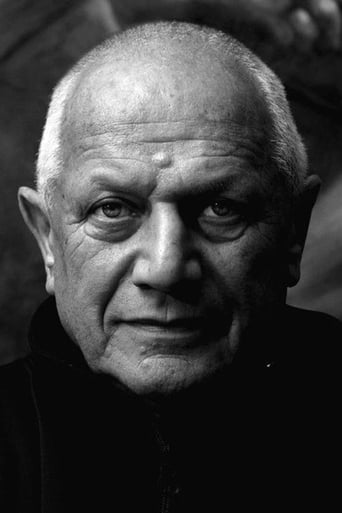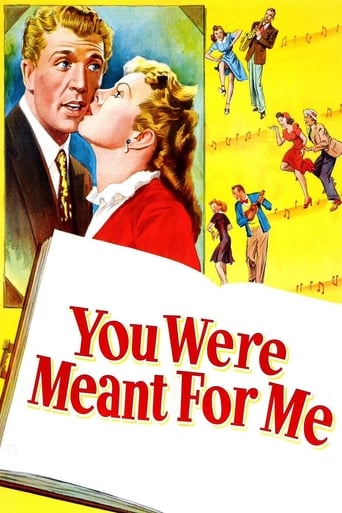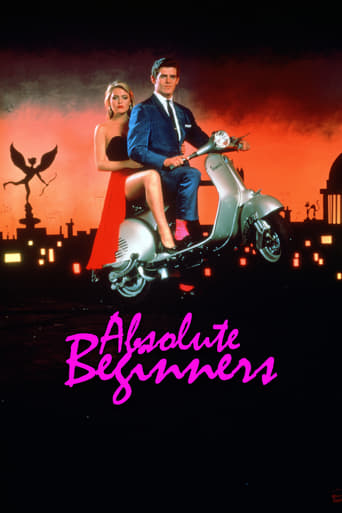
A musical adaptation of Colin MacInnes' novel about life in late 1950s London. Nineteen-year-old photographer Colin is hopelessly in love with model Crepe Suzette, but her relationships are strictly connected with her progress in the fashion world. So Colin gets involved with a pop promoter and tries to crack the big time. Meanwhile, racial tension is brewing in Colin's Notting Hill housing estate...
Similar titles
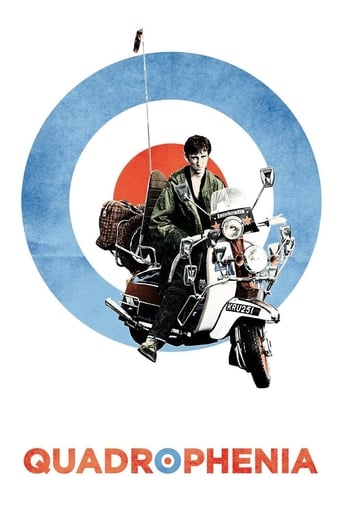
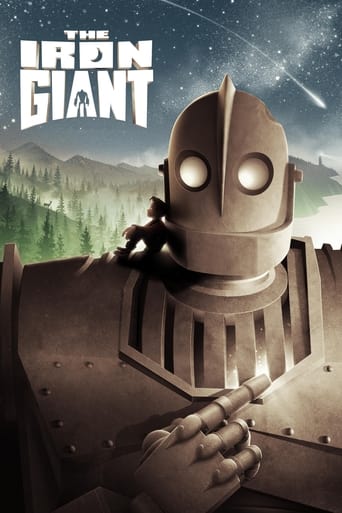
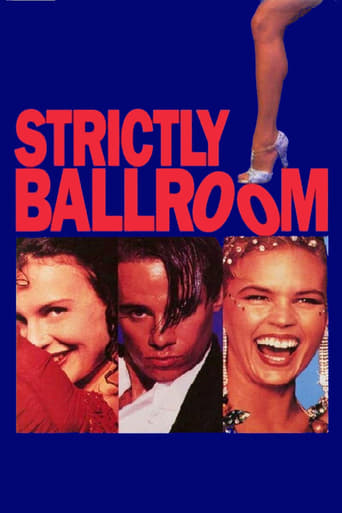
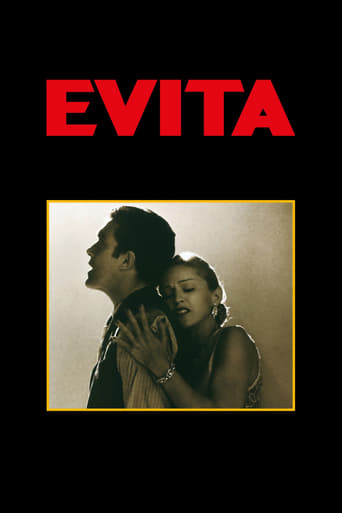
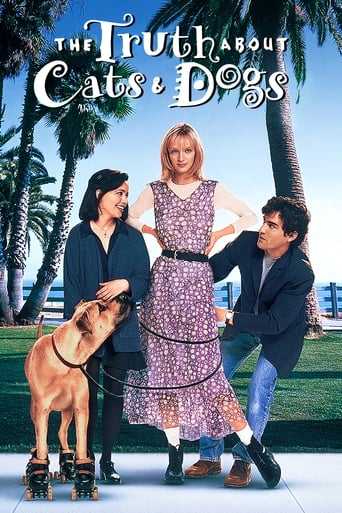
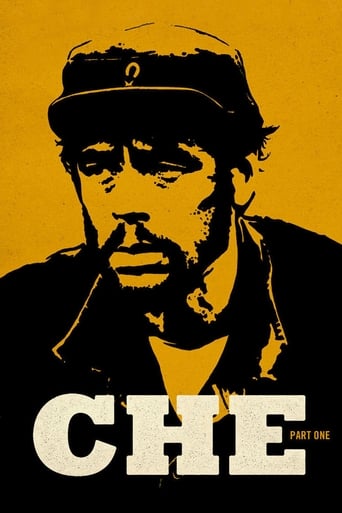
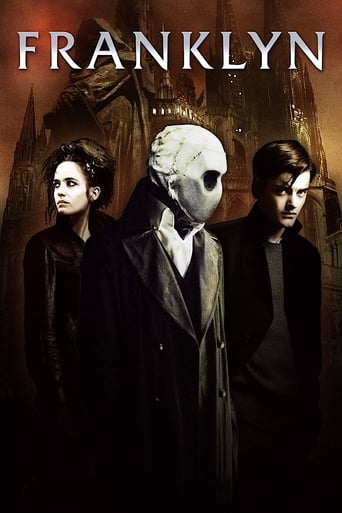
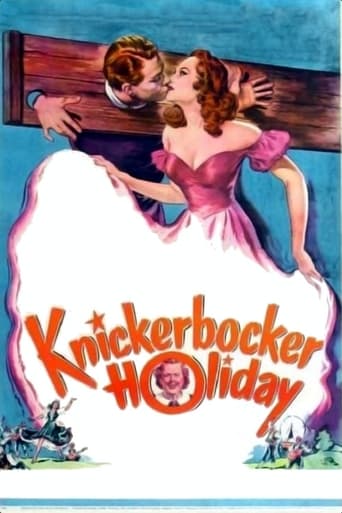
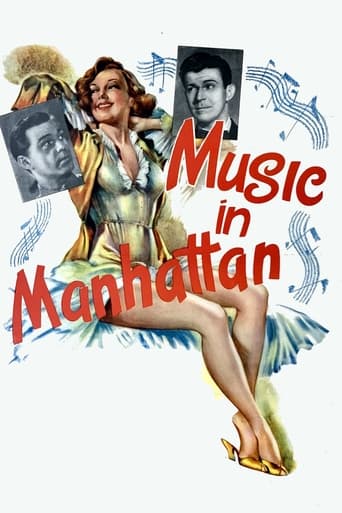
Reviews
As Good As It Gets
Easily the biggest piece of Right wing non sense propaganda I ever saw.
It's simply great fun, a winsome film and an occasionally over-the-top luxury fantasy that never flags.
This movie tries so hard to be funny, yet it falls flat every time. Just another example of recycled ideas repackaged with women in an attempt to appeal to a certain audience.
I didn't exactly hold high expectations for this, and I admit I watched it solely for David Bowie. But any hopes or expectations I held were speedily dashed.What the hell WAS this farrago? A British "West Side Story", with much less compelling music. Instead of Jets vs. Sharks, it was Teds, neo-fascists and greedy developers vs. just about the entire rest of society. In 1958,the year of the story, I was 12 years old, on the verge of becoming a "teenager", this mysteriously powerful being lauded by the film as a kind of godlike figure. But the glamorization of such nasty people and the romanticism of violence, improbable situations is SO unlikely and hard to swallow. I was a kid, as I said, but I really doubt that people sat around in cafés in narcoleptic trances snapping their fingers, or at least not for long periods of time. This fictional romanticism of parasites on society is my major hate on "West Side Story" itself. And the music was godawful, except for Bowie's contributions.As for the actors: Patsy Kensit was charming enough in a thankless role, Eddie O'Connell basically disappeared into the scenery and didn't have the chops to carry the part, James Fox was delicious as always, and Bowie had about ten minutes total screen time, including a fairly dumb musical number, only tolerable because it was him and because he's a really good dancer who wore one of the best suits I've ever seen. A sad waste of his talents: I find him to be a very engaging actor and a lot better than people give him credit for.All in all, an unpleasant, improbable piece of silliness, reducing the Notting Hill riots to choreographed posing. Avoid.
Given the superb, gritty 1959 novel and the potential of a wonderful rock 'n' roll/modern jazz soundtrack, the film from the truly dire 1980s has my vote for the worst film of all time. The novel's inspiration appears to begin and end with the title, as wonderful potential scene after wonderful potential scene is simply replaced by an extended pop video from the worst era for pop music. The saddest thing of all is that the wonderful novel had never been filmed before (either on television or at the cinema) and this dire effort has probably put paid forever of an adaption of such a sensational book. The author would have hated it and anyone remotely involved in this film's making should be (a) thoroughly ashamed of themselves and (b) are completely deserving of the 1980s.
It is often said that the British just can't do film musicals. That even though we're pretty good at theatrical musicals, the cinematic version is, like gridiron football and republicanism, something best left to our cousins across the Atlantic. This prejudice even survived the award of a "Best Picture" Oscar to "Oliver!", and by the mid-eighties the traditional style of film musical was at a pretty low ebb even in America and virtually extinct in Britain. "Absolute Beginners" was therefore something completely unexpected. It was a British musical which owed nothing to Broadway and very little to the sort of pop-and-rock musicals ("Saturday Night Fever", "Fame", "Flashdance", etc.) which Hollywood had started to turn out in the seventies.The film was also adapted from an unexpected source; the Colin MacInnes book of the same name about youth culture in late 1950s London. I doubt if MacInnes, who died in 1976, ever imagined that his novel would ever be turned into a musical. The story is set in the long hot summer of 1958. (At least, that's how MacInnes describes it, although Met Office records show that the summer of that year was wet and cool). The main character is Colin, a young photographer. In the original novel he was unnamed, but here he is named after his creator, rather oddly given that the book was not intended to be autobiographical. (MacInnes would have been 44 in 1958, a generation older than his character).Colin falls in love with Crepe Suzette, an aspiring fashion designer, but she gets engaged to her boss Henley of Mayfair, motivated by career advantage rather than love, as Henley is an arrogant and unpleasant individual, old enough to be Suzette's father. In the book, in fact, the compulsively promiscuous Suzette is also not very pleasant, but here her character is very much softened. The film also deals with the Notting Hill race riots, shown here as having been whipped up by a Fascist rabble-rouser, unnamed but clearly based upon Oswald Mosley. The said demagogue is in league with a corrupt property developer who wants to drive the black inhabitants out of Notting Hill, at the time a very run-down area, in order to further one of his redevelopment schemes."Absolute Beginners" was panned by the critics and failed at the box-office. Together with the commercial failures of two other films released about the same time, "Revolution" and "The Mission", it led to a decline in the fortunes of Goldcrest, the major British film studio of the eighties. Some even started talking of a crisis in the British film industry, which had produced so many great films in the first half of the decade. The film was also disliked by literary purists who complained that it was not faithful to the original novel, particularly in the rewriting of MacInnes' ending and the bowdlerisation of Crepe Suzette's character.And yet I loved the film and still do, even though the critics were partly right. Yes, the film has its flaws. Eddie O'Connell makes an uncharismatic hero, and seems too old for the part of Colin, who is supposed to be a teenager. (O'Connell has faded from view since 1986 to such an extent that I have been unable to find his exact date of birth, but he appears to be about thirty). The storyline does not always flow smoothly, perhaps not surprisingly given that it was the first feature film of its director Julien Temple, thitherto better known as the maker of pop videos and a documentary about the Sex Pistols. As for the literary purists, they are certainly right about its lack of fidelity to its literary source, although in its defence I should say that had it not been for this film I should in all probability never have discovered MacInnes' brilliant novel or his other writings.The acting, like much in the film, is deliberately stylised. (Those who call it wooden are missing the point). The lovely Patsy Kensit makes a delightful heroine as Suzette in what has been described as her breakthrough role. At the time she was hailed as the "British Bardot" and is still a familiar face, even if she has never achieved her much-quoted ambition "to be more famous than anything or anyone".Despite its faults, "Absolute Beginners" is a cool and stylish movie. It probably has little to do with the fifties as they actually were, but a lot to do with the fifties as they should have been. It has an immense drive and energy with an absolutely irresistible soundtrack. Modern audiences might be surprised that this is largely jazz based, given that we now tend to look back at the late fifties as the birth of the rock-and-roll era. At that time in Britain, however, before the rise of the Beatles, jazz was still very much part of the youth scene, particularly of the "mod" subculture, rock being associated with the mods' rivals, the "rockers". A number of leading musicians, such as David Bowie, Sade and the Style Council contributed to the film. (Bowie also makes an acting contribution as the property developer Vendice Partners).I have a personal reason why this film is a favourite. It brings back memories a long hot summer- not that of 1958, when I was not even born, but that of 1986. At the time, I was young and in love and went to see the film with my girlfriend. I remember us coming out of the cinema together on a warm summer's evening, exhilarated by what we had just seen, and walking along the London Embankment, laughing and singing Bowie's great theme song to one another. "As long as we're together, all the rest can go to hell- I absolutely love you". With a memory like that, how could I do other than love this film? 8/10
If you've read the original novel, as I did, you will probably hate this thing.The film version of _Absolute Beginners_ is a nightmarish conglomerate of 1980s anachronisms attempting to create a "period piece" set in the late 1950s and failing to re-create or even pay homage to that period -- the US monstrosity of _Dirty Dancing_ does similar to 1963, except that film proved financially successful despite having equally amateurish screen writing. In addition to suffering from "looking too 1980s", the characters have been changed, re-arranged, and downplayed to the point that the only characteristics they have in common with those of the novel are the slightest superficial looks and, of course, their names: Suze is transformed from the narrator's flighty ex-girlfriend and promiscuous negrophile who willingly plans to marry a closeted old queen for money (at her own admittance in the first few pages) into a hapless and naive "Eve"-archetype seduced by fame and glamour, exploited and somehow scammed into a sham marriage by her boss, who surprisingly wasn't given a Van Dyke and pointy hairstyle. She and the narrator, re-named "Colin" (after the book's author, Colin MacInnes) for the film, are also in a relationship.Big Jill's character, a lesbian seemingly butch yet "fop like" in her mid-20s who acts as pimp to a cadre of young and bubble-headed lesbians, and one of the narrator's closest friends, dispensing frank wisdom to the narrator, is reduced to a sort of "named extra" with only a few throw-away lines, and tonnes of comical outfits.The Fabulous Hoplite, a gay young man and another close friend of the narrator in the novel, is also reduced to the point of being pointless in the film, camped-up and all but ignored.The narrator's father in the novel is a sort of sad minor character but in the film, he's played to come off as optimistic and oddly spirited despite the squalid neighbourhood, and the disarray of his marriage to the narrator's mum seems, for all practical purposes, ignored.In its favour, the music (for what it is) is well-composed, and you have to give the production and writing crews credit for actually taking a line from the book ("...some days, they'll write musicals about the 1950s...") as their inspiration to write a musical, but in the world of bad camped-up musicals, this is among the most poorly executed in the bunch. Unlike _Shock Treatment_ or _Starstruck_ crucial plot elements are treated as afterthoughts. Unlike _The Apple_, there is a choppy and uneven flow between musical numbers and spoken dialogue.You really can't blame it's "too 1980s" feel on the fact that it was created in the 1980s. The film version of _Annie_ released in 1981, pays a wonderfully well-executed tribute to the look and feel of New York City in the 1930s, and _Napolean Dynamite_ manages to capture a gritty sort of look and feel of the 1980s despite being made on a low budget in 2003 (though it's not explicitly set in the 1980s, those who lived through the decade cannot deny that the film "feels very 1980s"). Obviously, it was _possible_ to make something good out of this, especially considering the iconic status that the source novel has in the UK, but it fails most apparently in the look and feel, and also in its treatment of the source material, which is downright disrespectful.Perhaps if you haven't read and have no intentions of reading the novel, you could enjoy this campy 1980s anachronism giving a shameful parody of late-1950s Soho London's modernist jazz set. I can definitely see what the writing team were attempting, but they definitely could have done better. With Boy George as a household name and mixed-race musicians and bands on the charts in 1986 UK, they definitely did _not_ need to bowdlerise the characters in the ways that they ended up doing. In fact, I'd go so far as saying that the writers wound up doing what both the book and film criticised harshly -- it ended up having a bunch of adults cranking out crap and treating its targeted teen-aged audience like two-bit idiots to make a quick buck off of.
Top Streaming Movies











